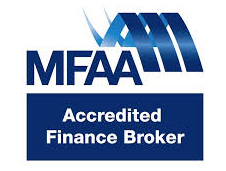Is your loan not
what it used to be?
You could save a bunch of
money by rolling it over
into a new loan.
Loans shouldn’t be set-and-forget
It pays to check in on whether there’s a better deal available.
Why refinance?
There are many reasons to refinance.
Refinancing can lower your interest rate, reduce monthly payments, and free up cash for extra repayments, helping you pay off your loan faster. Even if your circumstances haven’t changed, exploring refinancing might uncover new features that suit your needs better.
The process involves replacing your current mortgage with a new one, with different terms that better suit your financial situation.
We manage the entire refinancing process for you, ensuring a smooth transition and finding the best solution to fit your financial goals.

The key to successful refinancing is knowing the costs involved and weighing these up against the benefits, as yes, leaving your old loan does come with refinancing costs.
Before refinancing, consider:
- Reducing non-home loan debt
- Your repayment capacity
- Preparing your home for valuation
- Your reasons for refinancing

Frequently asked questions
You may want to think about refinancing your home loan if:
- Interest rates have decreased since your last refinance or when you initially took out your loan.
- Your credit score has improved, qualifying you for better loan terms.
- You wish to switch your loan type, such as moving from a variable to a fixed rate loan.
- You want to tap into your home’s equity for other expenses, like renovations, vacations, or purchasing another property.
- You’re considering changing the length of your loan term, either shortening or extending it.
There’s no specific limit on how frequently you can refinance your home loan.
Although refinancing might have a minor and temporary impact on your credit score, it should improve once you begin making repayments on your new loan.
Be aware that applying for multiple loans with different lenders can result in ‘hard inquiries’ on your credit report, which may affect your score negatively.
To determine if refinancing is the best option for you, contact us.
The costs of refinancing your home loan can vary depending on factors such as the lender, the remaining balance on your loan.
Typical expenses may include:
- Application and setup fees
- Discharge fees
- Property valuation fees
- Lenders Mortgage Insurance (LMI) if your equity is under 20%
- Break costs if you refinance a fixed-rate loan before the end of its term
To determine if refinancing is the best option for you, contact us.
Refinancing can take anywhere from as little as 1 week up to 2 months, but generally falls within the 30 to 45 day range.
While it is common for homeowners to refinance to a 30-year term, it is not the only option available. You can choose a loan term that suits your needs.

